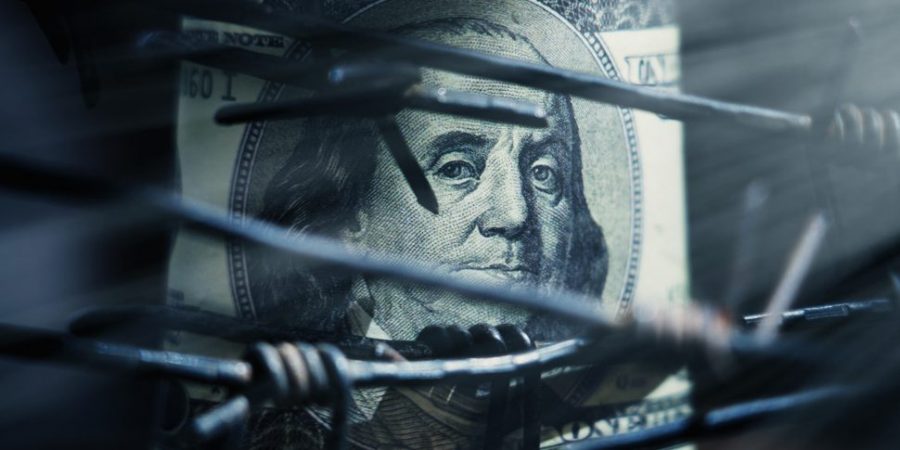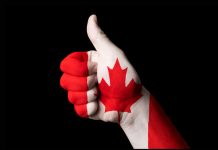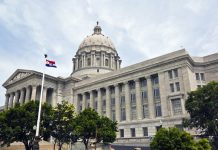
Chris Kape, President at JAMCO Capital, believes that levies charged by the leagues will ultimately be detrimental to the legal sports betting industry.
It is hard to believe that only three years ago most residents of the USA had no opportunity to place a legal wager on a sporting event unless they lived in or were visiting Nevada. In spite of this, they bet anyway – with friends, through office pools and, most notably, through illegal offshore sports betting websites.
After all, laws weren’t going to stop Americans from participating in one of the most beloved and prolific pastimes – watching and betting on sports!
The landscape is now completely different since the repeal of the Professional and Amateur Sports Protection Act (PASPA) in May 2018. While only two years have passed since the change of law, 19 states already allow some form of legal, regulated sports betting, with many more in various stages of discussion or regulation. Sports betting in the US is here to stay and there is no doubt that it will continue to grow exponentially for the foreseeable number of years.
Betting on sports has proliferated from just a few licensed venues in Nevada to what will likely be thousands of physical locations across the country within another couple of years – not to mention the conveniences that will undoubtedly come with the availability (in most states) of betting online.
Profiting from sports betting
Major sports leagues and teams were quick to embrace gambling as soon as PASPA was overturned. By July 2018, only one month after the law changed, the NBA was the first to sign a marketing deal with a betting partner by teaming up with MGM Resorts International.
This new source of revenue for the NBA is said to be worth $25m. Additional marketing deals for other major sports leagues and various large gaming partners have since been signed and publicized over the past two years, each garnering big dollars and attention from the media as well. Since there are virtually no costs in servicing these deals, the revenue amassed by the leagues goes straight to profit.
It’s not only marketing deals that are being signed. Data rights from the leagues are sold at a premium to sportsbook data providers as well. Sportsradar is said to have spent $250m on a six-year exclusive deal that allows it to distribute NBA data to betting operators. Said data is used for in-play gambling purposes. Similarly, rich and exclusive deals with other leagues have been signed by Sportsradar or their competitors, further enhancing the leagues’ bottom line profits.
Even sports venues will not be immune to deals as the next time fans are allowed to spectate in person – hopefully soon – many of them will be able to pop into a sportsbook lounge backed by a betting operator. The Rivers Casino area at the NHL’s Pittsburgh Penguins Arena is one such example. While venue deals are not league wide, they will invariably benefit the owners of the teams, who are, in effect, the owners of the leagues.
There are also vast indirect benefits. As an example, spectating sport with betting enhances levels of fan engagement and boosts viewership figures. A television commercial at the end of a blowout game was practically worthless three years ago. his is no longer the case with the game still on the line where gamblers are still engaged betting ‘against the spread’ or ‘in-play’, keeping them on their couch, and excited, until the very end of the match.
The giant industry that is US sports, which for so long supported prohibition of betting, is ostensibly embracing the betting sector and welcoming its dollars – and the payoffs to the leagues have already proven to be tremendous.
Today, team presidents and owners amiably sit alongside betting operators’ CEOs in photo ops as deals are announced and publicized, which have become common industry news. With all the existing new revenue sources, it seems strange then that some of the leagues are still seeking ways to extract even more revenue from these same betting companies.
Compulsory levies
When states such as New Jersey led the way in legalizing sports betting in 2018, the leagues proposed ‘integrity fees’ as the initial form of levy to extract their share of the action. Had they been successful, these integrity fees would have required betting operators to pay a far-reaching 1% of handle (amount of total bets taken) for the rights to offer markets on their games.
While 1% doesn’t sound like a lot, bookmakers operate on a hold percentage somewhere around 7%, so a 1% fee would have amounted to a catastrophic 14% of gross revenue in additional costs. In addition, since the levy was proposed on handle, there was effectively no risk to the leagues, meaning if a bookmaker had a dismal 4% hold percentage (or even lower) in a particular season, the integrity fee would amount to 25% or more of their gross margin.
Under the original proposed fees, a decent season would likely amount to the sportsbook operator achieving only marginal profitability or breaking even, while a bad one would unquestionably bankrupt it. Thankfully, no such fee was imposed in the two years since the law was changed.
However, the integrity fee ‘project’ is not completely dead. A rebranding exercise has been taking place, with the MLB and NBA in particular, pushing what has become known as a ‘royalty fee’. Said fee would force all operators to pay for officially licensed data.
NBA Commissioner Adam Silver has been quoted as saying: “We feel – just in the same way a musician receives a royalty for the music that’s being played, we should receive some sort of royalty. So, call it a royalty, call it an integrity fee, we will have additional expenses and it’s ultimately our intellectual property, and we think we should be compensated for it.”
It has been reported that the NBA and MLB last year unsuccessfully attempted to force bookies to pay 0.25% of handle to use their official data. Such fees seem ludicrous in the context of teams and leagues already receiving huge amounts of money from betting operators in official – and voluntary – partnerships. It’s even more preposterous given that they already pay a form of tax through obtaining rights to their data. If the leagues enforce a ‘royalty’ fee as well, it would be tantamount to double (or sometimes triple) taxation.
Repercussions of levies
While Commissioner Silver and others may have pivoted their rationale from integrity to royalty, they have always maintained that the use of these fees was to ensure the fairness of the game – hence the original word – ‘integrity’. Their plan couldn’t be more unlikely to come to fruition if they tried. These fees, and all other forms of fees, will invariably divert money from licensed operators, while not taking a cent from illegal operations.
Whether it’s 1% or 0.25%, that figure in terms of handle for each sport would be a significant sum for any operator. Add in the fees required to obtain data and properly market a sportsbook, not to mention the compliance costs and state and federal tax bills, and one can see how a legal betting operator can be undercut by an illegal offshore sportsbook.
All of these expenses will have to be passed on to consumers, meaning better value can be obtained from illegal operators through the likes of better odds pricing and more aggressive deposit bonuses.
Unless the leagues want to voluntarily offer a percentage of their newfound revenue, including any new levies like ‘royalty fees’, to law enforcement to catch more of the underground operations, this will put legal entities at a distinct disadvantage. Perhaps one might also wonder whether all these fee impositions actually divert local taxes from state coffers to these wealthy major sports leagues and international data providers?
Betting operators are already paying taxes, employing tens of thousands of Americans and paying millions of dollars directly to teams and sports in marketing and data right agreements. The imposition of further fees would hamstring licensed operators and reduce their competitiveness to the benefit of illegal operators. Now is the time to back off from this concept and let the legal operators flourish.
Chris Kape, an igaming industry veteran of two decades, is the owner of JAMCO Capital, an early-stage venture capital and business consultancy, and is the founder and ex-CEO of Don Best Sports, which was sold to Scientific Games in 2018.














